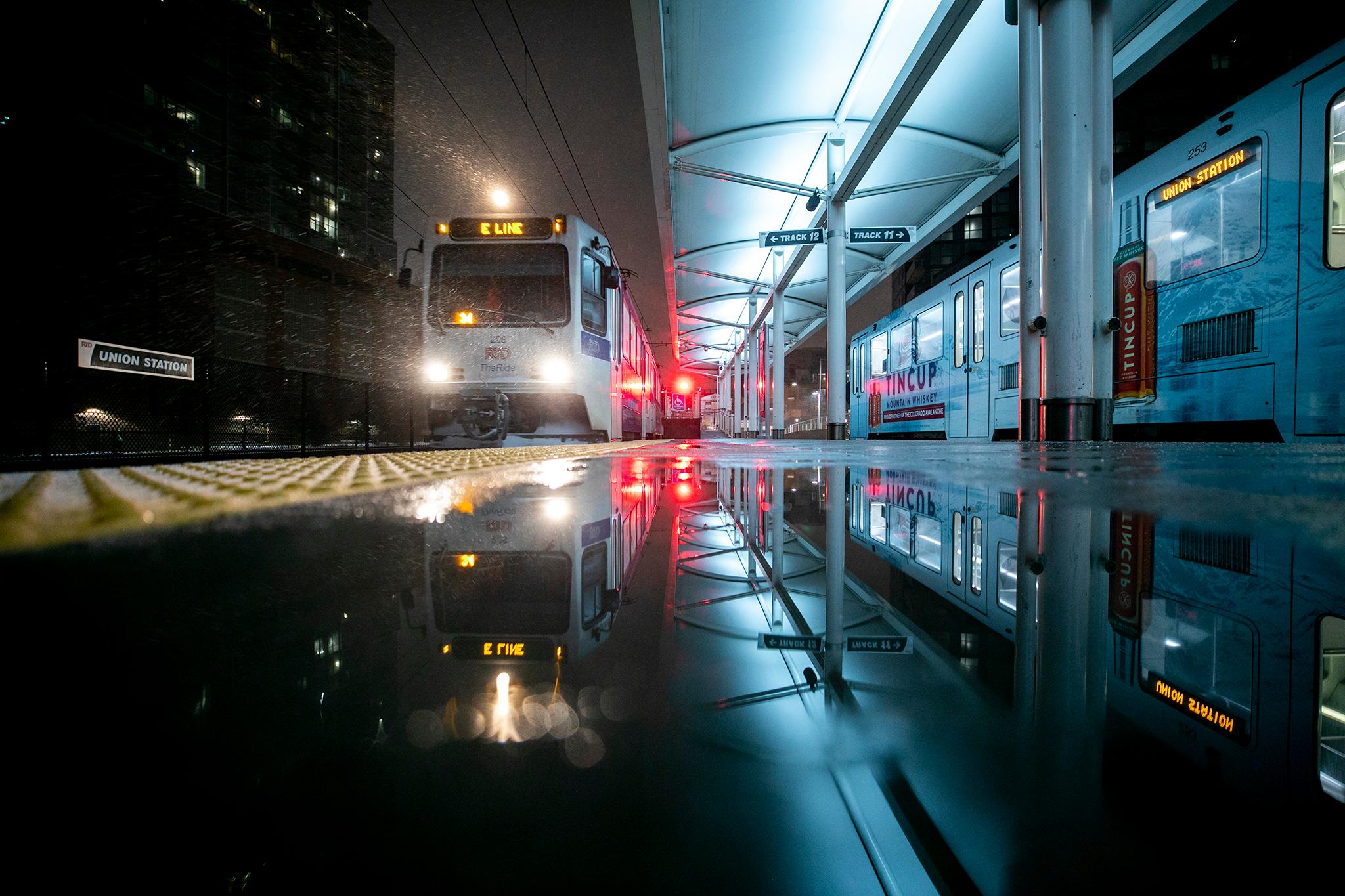The Regional Transportation District has dropped plans to explicitly ban passengers from riding its buses and trains indefinitely.
The transit agency released on Monday a new version of proposed changes to its passenger code of conduct, now rebranded "Respect the Ride." The new draft leaves out two controversial additions first proposed by RTD staff in January and made public in a Denverite article.
The first would have banned passengers from remaining on the system, "for more than one continuous trip without exiting the paid area and re-entering by paying or validating a second fare or riding on the system indefinitely without exiting the system as indicated by the totality of the circumstances."
The second would have banned the "unauthorized use of an electrical or data outlet."
The Colorado Coalition for the Homeless criticized those two proposed changes, arguing they targeted the Denver region's unhoused community. Several people experiencing homelessness recently told Denverite they're victims of rising rents and other societal crises, and use RTD vehicles and stations to stay warm and alive.
RTD dropped those provisions after hearing feedback from the public, said agency spokesman Stuart Summers.
"We want to be an open and welcoming transit environment," he said, adding: "The emphasis is on, 'If you have paid your fare, you are welcome to use the system. When the train gets to the end of the line, all customers have to exit. But you can immediately get right back on."
The ban on using outlets was initially proposed in response to people unplugging RTD's vacuum cleaners and information displays, Summers said. The agency has already removed and covered some power outlets at busy facilities like Union Station. People won't be penalized for using available outlets that remain, Summers said.
"We understand that individuals need to have access to power," Summers said.
A third controversial addition remains in RTD's latest draft. It would ban people from being on RTD property or vehicles, "where the totality of the circumstances indicates that an individual is not using RTD services, contracting lawful business, engaging in protected speech, or otherwise exercising a fundamental right."
The preservation of that last provision concerns the Colorado Coalition for the Homeless, said the organization's spokeswoman Cathy Alderman. But, she added, "it does look like they have moderated a bit" overall.
The agency is now also proposing to remove an existing ban on sleeping, "where such activity may cause concern for the person's wellbeing."
RTD's code of conduct update is part of a larger push to attract more commuters. A third of customers that responded to an RTD survey last year said they thought they could be a victim of crime while using its system.
Originally, RTD executives planned to implement its proposed changes to the code of conduct without public comment and without a vote by its publicly elected board of directors. Now, the agency is collecting feedback on the new rules for the next two months before sending them to the board.
"The biggest takeaway from this experience is we want to make sure that we are seeking feedback from the community and from our customers," Summers said.
That feedback could result in more changes to the code before the board ultimately votes on it in June, Summers said.
Editor's note: Colorado Coalition for the Homeless is a financial supporter of Colorado Public Radio, Denverite's parent organization.













